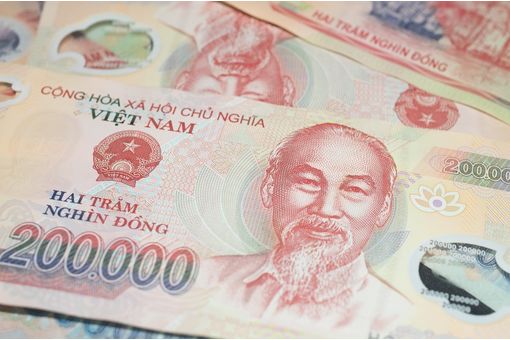Interviews
News Flash
Cotton Australia - hard at work on Carbon Policy
04 Jul '11
3 min read
Cotton Australia has been keeping abreast of Government developments for policies to reduce carbon emissions, namely the proposed carbon tax and direct action initiatives such as the Carbon Farming Initiative.
Along with the NFF, Cotton Australia has been working to understand what these policies might mean for the agriculture sector and cotton businesses, in order to engage with policy makers and provide information to growers. This has included recent modelling work undertaken by the Australian Farm Institute on a carbon price scenario.
Independent researchers at the Australian Farm Institute have been analysing the potential impact of the proposed carbon price mechanism on the profitability of farm businesses in Australia, across different commodities. Coordinated by the NFF, the process has so far seen the release of results for the sheepmeat and grains sectors.
Cotton Australia has participated in this process, providing funding and industry data to support the development of a paper outlining impacts of a carbon price on cotton businesses under various carbon price scenarios.
Key findings include:
• The results have included a scenario whereby agriculture is assumed to be an uncovered sector (i.e. costs are not imposed on direct farm emissions) and fuel is included (i.e. costs are imposed on emissions arising from fuel). Modelling under this scenario has indicated that for a 'model' farm of 400 ha irrigated cotton, after five years following the introduction of an economy-wide carbon price tax commencing at $20/t, the farm business would incur total annual cost increases of 2.1%, amounting to $30,992 additional annual costs. This would result in a reduction in farm net income of 5.5% (at year five).
• At a carbon price scenario of $36/t (the price expected over the longer-term if Australia is to meet its target of reducing emissions by 5%), projected total annual cost increases would rise by 3.2%, amounting to $47,237 additional annual costs. This would result in a reduction in farm net income of 8.4% (at year five).
• Costs arise from an increase in the price of energy, which would increase the cost of energy-reliant farm inputs (e.g. electricity, fuel and fertiliser).
• The additional costs calculated in the modelling include both on-farm and additional post-farm gate costs, which have been assumed to be fully passed onto the farm business. In reality, whilst the latter is not a direct cost, it is anticipated that these costs will be passed back to growers in the form of higher processing costs and/or lower prices.
• If fuel is excluded from a tax, expected impacts are significantly reduced through a reduction in the increase of on-farm costs relating to fuel use (e.g. machinery operations) and post-farm gate transport from gin to port. If fuel is excluded, farm and processor costs are both expected to contribute approximately 50% of the total increase in costs. This is compared to a scenario where fuel is included, where farm costs are projected to rise by a greater amount than processor costs (contributing to 80% of the total increase in costs).
Along with the NFF, Cotton Australia has been working to understand what these policies might mean for the agriculture sector and cotton businesses, in order to engage with policy makers and provide information to growers. This has included recent modelling work undertaken by the Australian Farm Institute on a carbon price scenario.
Independent researchers at the Australian Farm Institute have been analysing the potential impact of the proposed carbon price mechanism on the profitability of farm businesses in Australia, across different commodities. Coordinated by the NFF, the process has so far seen the release of results for the sheepmeat and grains sectors.
Cotton Australia has participated in this process, providing funding and industry data to support the development of a paper outlining impacts of a carbon price on cotton businesses under various carbon price scenarios.
Key findings include:
• The results have included a scenario whereby agriculture is assumed to be an uncovered sector (i.e. costs are not imposed on direct farm emissions) and fuel is included (i.e. costs are imposed on emissions arising from fuel). Modelling under this scenario has indicated that for a 'model' farm of 400 ha irrigated cotton, after five years following the introduction of an economy-wide carbon price tax commencing at $20/t, the farm business would incur total annual cost increases of 2.1%, amounting to $30,992 additional annual costs. This would result in a reduction in farm net income of 5.5% (at year five).
• At a carbon price scenario of $36/t (the price expected over the longer-term if Australia is to meet its target of reducing emissions by 5%), projected total annual cost increases would rise by 3.2%, amounting to $47,237 additional annual costs. This would result in a reduction in farm net income of 8.4% (at year five).
• Costs arise from an increase in the price of energy, which would increase the cost of energy-reliant farm inputs (e.g. electricity, fuel and fertiliser).
• The additional costs calculated in the modelling include both on-farm and additional post-farm gate costs, which have been assumed to be fully passed onto the farm business. In reality, whilst the latter is not a direct cost, it is anticipated that these costs will be passed back to growers in the form of higher processing costs and/or lower prices.
• If fuel is excluded from a tax, expected impacts are significantly reduced through a reduction in the increase of on-farm costs relating to fuel use (e.g. machinery operations) and post-farm gate transport from gin to port. If fuel is excluded, farm and processor costs are both expected to contribute approximately 50% of the total increase in costs. This is compared to a scenario where fuel is included, where farm costs are projected to rise by a greater amount than processor costs (contributing to 80% of the total increase in costs).
Cotton Australia
Popular News
Leave your Comments
Editor’s Pick
































-Ltd..jpg?tr=w-120,h-60,c-at_max,cm-pad_resize,bg-ffffff)





.jpg?tr=w-120,h-60,c-at_max,cm-pad_resize,bg-ffffff)
.jpg?tr=w-120,h-60,c-at_max,cm-pad_resize,bg-ffffff)






